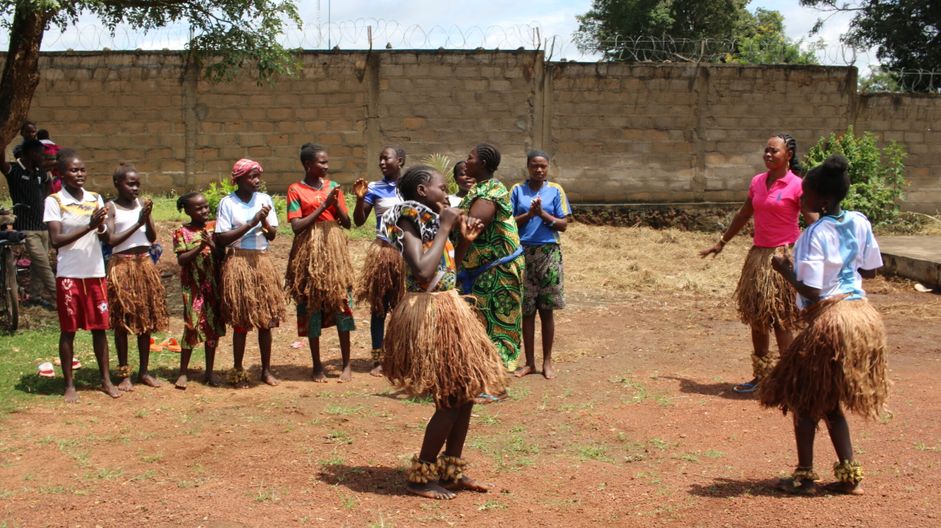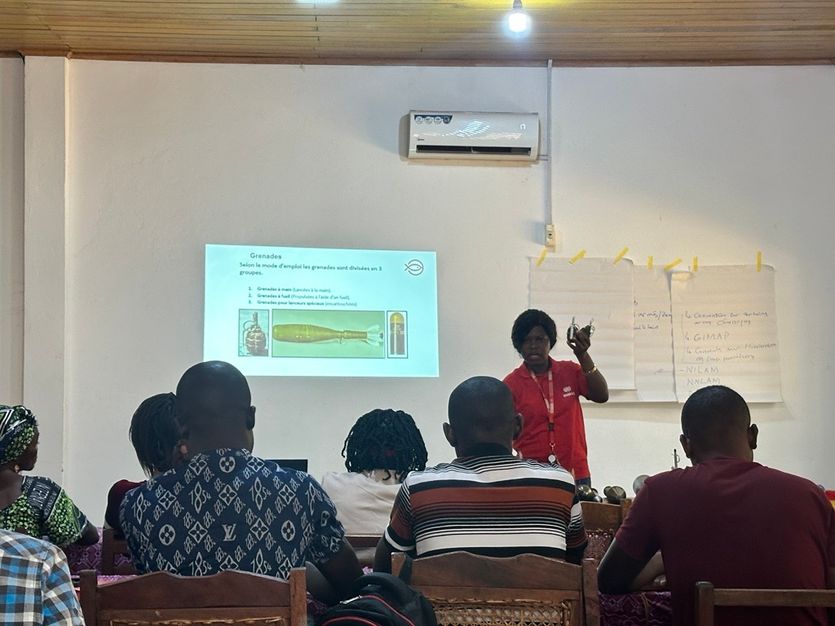Unexploded bombs and explosives continue to contaminate the ground in many parts of the Central African Republic – posing a lethal threat to people living there. Since 2020 there have been 285 recorded cases of people unintentionally setting of explosives left behind after fighting – and 270 of them with deadly consequences. 70% were civilians.
Education that saves lives
DanChurchAid in CAR therefore carries out risk education to educate people on the dangers – and teach them to spot potential unexploded bombs or ammunitions (ordnance) and how to take action to ensure that no one will be harmed by the explosive.
Between late September and mid-October DanChurchAid carried out Explosive Ordnance Risk Education (EORE) training in Bangui – and at the end staff was accredited by UNMAS to enable them to go into communities in Ouham-Pendé and tell them about the dangers of unexploded bombs and how to act if they come across one.
The subprefectures of Bocaranga, Koui, and Ngaoundaye in Ouham-Pendé are among the highest-risk areas in the country.
Participating in the training was Judith Claire Mbotouga who is a Community Liaison Officer with DCA CAR. She said;
“Having witnessed the devastating effects of explosive ordnance in my country, DCA gave me the opportunity to make a difference by recruiting me into its EORE team.
As a Community Liaison Officer, my main goal is to save lives by directly informing those who are affected – particularly in rural areas – and encouraging them to adopt safer behaviours.
In that way we are also spreading a message of hope to communities affected by the presence of explosive devices.”

Targeting vulnerable groups
The project is implemented in consortium with two national NGOs – Zo Kwe Zo and Association des Femmes pour la Promotion de l’Entrepreneuriat (AFPE). It is expected to reach 16,200 members of the communities – including internally displaced persons, returnees, refugees, and host communities, with a specific focus on vulnerable groups such as persons with disabilities, women, and children.
It is supported by the Humanitarian Fund for CAR (FH RCA) and will run until July 2026.



